Our circadian rhythms control our sleeping and waking patterns over each 24 hours, controlling our daily schedule. But many factors can influence your circadian rhythm, which can lead to you feeling sleepy or wide awake at the wrong times of day. With circadian rhythms affecting not just your sleep but also your mental state, understanding more about them could help you feel brighter, as well as more rested. In this article, I’ll explain more about circadian rhythms and how you can keep yours healthier.
What is a circadian rhythm?
Circadian rhythms are natural cycles that guide how living things respond to day and night. They aren’t unique to humans—plants, animals, and even tiny organisms rely on them. These rhythms help us adjust to changes in light and temperature, and they play a role in much more than just sleep. They influence body temperature, metabolism, hormones, immune function, and even how well we think and focus.
At the centre of these rhythms are biological clocks found in different parts of the body, all coordinated by the brain. Babies aren’t born with a fully set clock, which explains why their sleep patterns can be irregular at first. As children grow, their rhythms settle into the familiar pattern of sleeping at night and being awake during the day, although personal preferences can shift this slightly. As evening light fades, the brain signals the release of melatonin, the hormone that makes us sleepy, while the body cools down to prepare for rest. With morning light, the process reverses—melatonin drops, body temperature rises, and the body wakes up, ready for the day.

What happens when circadian rhythms are disrupted?
With such a delicate balance, it’s easy to see how your circadian rhythms can become disrupted. There are a number of factors that can disrupt your circadian rhythms:
- Shift work or jet lag
- Not sticking to a sleep schedule
- Poor sleep habits
- Too much screen time at night
- Underlying health conditions
- Lack of natural light during the day
The odd night or two with a disrupted sleep pattern isn’t the end of the world for most of us, but if your circadian rhythms are misaligned over longer periods, it can lead to more serious issues:
- Sleep problems: The most common issue with misaligned circadian rhythms is that it can make it harder to fall asleep, stay asleep and actually get enough sleep. If this carries on for long enough, it can lead to insomnia.
- Emotional issues: Serious sleep deprivation can make it hard to manage any stress, along with making it difficult to regulate your emotions. This can also mean that you might be more likely to experience issues with your mental health.
- Issues with tasks: Excessive sleepiness can lead to issues with focusing, along with memory problems that make it harder to remember how to do tasks.
- Accidents: If you’re tired all the time, you’re at a higher risk of having an accident due to a lack of concentration.
- Health problems: There are also a number of health issues associated with long-term misalignment of circadian rhythms, such as diabetes, high blood pressure, heart attacks and obesity.
How to maintain a healthy circadian rhythm
There are a number of simple ways to maintain a healthy circadian rhythm to ensure that your sleep patterns don’t become disturbed:
- Regular sleep and wake times: Panda London sleep expert, Dr Ritz Birah, recommends following a consistent routine, “Your circadian rhythm is your body’s internal clock, and it thrives on consistency. Aim to wake up and go to bed at roughly the same time each day, even on weekends. Exposure to natural light in the morning helps reset your clock, while dimming lights in the evening signals to the brain that it’s time to wind down.”
- Find the ‘best’ bedtime: Dr Ritz suggests that “The key is finding a time that allows for 7–9 hours of quality sleep. The ‘best’ bedtime is the one you can stick to consistently, where you wake up feeling refreshed rather than groggy. If you find yourself struggling to fall asleep, it’s better to focus on a calming pre-bed routine, reading, stretching, or journaling your gratitude (try Reflect with Dr Ritz) rather than forcing sleep at a set time.”
- Limit screen time before bed: The blue light that’s produced by electronic devices can actually inhibit melatonin production. Tempting as it is to scroll through your phone all evening, try to limit your screen time and, if you need to wind down in bed, read a book instead.
- Avoid stimulants too close to bedtime: Caffeine isn’t going to help you sleep, but it’s one of the major stimulants in people’s day-to-day lives. Dr Ritz suggests limiting caffeine after midday.
- Eating meals at consistent times: “Ideally, finish your main meal at least 2–3 hours before bedtime,” explains Dr Ritz. “This gives your body time to digest and reduces the likelihood of discomfort or disrupted sleep. If you need a snack closer to bedtime, choose something light and sleep-supportive, like a banana, warm milk or caffeine-free tea.”
- Try to avoid late afternoon naps: Napping late into the day means you’re unlikely to be tired when bedtime comes along, which will again disrupt your circadian rhythms.
- Set up a calming down routine: For many people, the best way to wind down for bed is by following a routine that helps calm their mind and body. This could take the form of reading a book, listening to a guided meditation or gentle music, or perhaps taking a warm bath.
How to reset or adjust your circadian rhythm
If following the above tips doesn’t help, then you might need to try some different approaches to help bring your circadian rhythms back into alignment.
- Light therapy: Light boxes allow you to control your exposure to light and darkness, with strategically timed exposures to help alter your melatonin production and get you back to a normal sleeping and waking pattern.
- Melatonin supplements and medications: Your doctor may recommend the use of melatonin supplements or medications, which will regulate your circadian rhythms when taken at set times and dosages. However, caution should always be exercised here – medications in particular can have side effects and should always be prescribed by a doctor.
- Sleep schedule adjustments: It’s important to avoid taking long naps later in the day as this will disrupt your sleep. If you’re a shift worker and have no choice but to work ‘back to front’ as it would be, it’s even more important to follow a consistent sleep schedule – light boxes can be particularly helpful here if you can have them in your workplace.

Why your sleep environment matters for your body clock
To optimise the chances of getting a good night’s sleep and maintaining a regular sleep cycle, you need to have a comfortable sleeping environment. This means investing in a supportive mattress, such as Panda’s Hybrid Bamboo options, along with using breathable and comfortable bedding, such as Panda’s bamboo bedding, to ensure that you can maintain the optimal temperature for sleep through the night. Circadian rhythms are sensitive to comfort cues, so make sure you provide your body with a space that makes you want to sleep in it at night.
Final thoughts
Understanding your circadian rhythms and knowing how to provide an environment that helps regulate them can make a huge difference to not just your sleep but also your overall well-being and comfort. Now you understand a little more, why not read up more on the subject and make sure you invest in comfort products as needed!
FAQ
1. How does circadian rhythm affect mental health?
Circadian rhythms influence hormone release and emotional regulation. Disruptions have been linked to anxiety, depression, and seasonal affective disorder, making rhythm balance vital for mental well-being.
2. Can circadian rhythm impact weight and metabolism?
Yes. A disrupted circadian rhythm can affect insulin sensitivity, appetite hormones, and digestion, which may increase the risk of weight gain and metabolic disorders.
3. What is the difference between circadian rhythm and biological clock?
The biological clock is the internal mechanism that controls timing, while the circadian rhythm is the outward 24-hour cycle it regulates, such as sleep and wake patterns.
4. Do circadian rhythms change as you age?
Yes. Children and teens naturally have later sleep cycles, while older adults often experience earlier wake times. Age-related changes in circadian rhythm can impact sleep quality.
5. Can diet influence circadian rhythm?
Meal timing and food types play a role. Eating late at night or consuming heavy, sugary, or caffeinated foods can interfere with melatonin production and circadian alignment.

![[MattressTopper] Panda London Memory Foam Bamboo Mattress Topper package box](http://pandalondon.com/cdn/shop/files/Bamboo_Mattress_Topper_Package_Box.webp?v=1742301823&width=1500)
![[MattressTopper] Panda London Memory Foam Bamboo Mattress Topper on the floor](http://pandalondon.com/cdn/shop/products/Panda-Memory-Foam-Bamboo-Mattress-Topper-Yoga-e1624045454555.jpg?v=1758795458&width=1000)
![[MattressTopper] Bamboo Mattress Topper Lifestyle Image with Memory Foam Pillows Product Page](http://pandalondon.com/cdn/shop/files/Bamboo_Mattress_Topper_Lifestyle_Image_with_Memory_Foam_Pillows_Product_Page.webp?v=1758795458&width=800)
![[MattressTopper] Bamboo Mattress Topper Lifestyle Image with Bamboo Pillows In the Garden room Product Page](http://pandalondon.com/cdn/shop/files/Bamboo_Mattress_Topper_Lifestyle_Image_with_Bamboo_Pillows_In_the_Garden_room_Product_Page.webp?v=1758795458&width=800)
![[MattressTopper] Panda London Memory Foam Bamboo Mattress Topper side](http://pandalondon.com/cdn/shop/files/Mattress_Topper_Isolated_-_resized.jpg?v=1758795458&width=800)
![[HybridMattressPro] Hybrid_Bamboo_Mattress_Pro_Product_Image_2026](http://pandalondon.com/cdn/shop/files/Hybrid_Bamboo_Mattress_Pro_Product_Image_2026.webp?v=1764944771&width=1000)
![[HybridMattressPro] Breathable Hybrid Bamboo Mattress](http://pandalondon.com/cdn/shop/products/Breathable-Hybrid-Bamboo-Mattress.jpg?v=1764944771&width=1920)
![[HybridMattressPro] Hybrid Bamboo Mattress Pro Cover Zip](http://pandalondon.com/cdn/shop/files/Hybrid_Bamboo_Mattress_Cover.jpg?v=1764944771&width=800)
![[HybridMattressPro] Panda Hybrid Bamboo Mattress Pro](http://pandalondon.com/cdn/shop/files/Hybrid_Bambo_Memory_Foam_Mattress_-_BioCell_Foam_x.jpg?v=1764944771&width=800)
![[HybridMattressPro] Couple on a Hybrid Bamboo Mattress Pro](http://pandalondon.com/cdn/shop/files/Hybrid_Bamboo_Mattress_Couple.jpg?v=1764944771&width=800)
![[CloudDuvet] Panda London The Cloud Bamboo Duvet Packaging](http://pandalondon.com/cdn/shop/products/Panda-London-The-Cloud-Bamboo-Duvet-Panda-Life-scaled_00a651ad-4ca3-4105-b520-12a94c1a4f71.jpg?v=1713363286&width=1920)
![[CloudDuvet] Panda London The Cloud Bamboo Duvet Rolled](http://pandalondon.com/cdn/shop/products/Duvet-Listing-Images03.jpg?v=1764079307&width=1000)
![[CloudDuvet] Panda London The Cloud Bamboo Duvet Girl Huggin a Duvet on the Bed](http://pandalondon.com/cdn/shop/files/Cloud_Bamboo_Duvet_-_Lady_Hugging_it_on_Bed_LifestyleImage.jpg?v=1764079307&width=1000)
![[CloudDuvet] Panda London The Cloud Bamboo Duvet Guy In the Air with Cloud Bamboo Duvet](http://pandalondon.com/cdn/shop/files/GuyonaHybridBambooMattresswithCloudDuvet.jpg?v=1764079307&width=2000)
![[CloudDuvet] Panda Cloud Duvet Winter on the bed lifestyle image](http://pandalondon.com/cdn/shop/files/Panda_Cloud_Duvet_Winter_on_the_Bed_Lifestyle-1_image.jpg?v=1764079307&width=1000)
![[BBWhite] White 100% Bamboo Bedding](http://pandalondon.com/cdn/shop/files/Pure_White_Full_Bed.webp?v=1719581797&width=1000)
![[BBWhite] White 100% Bamboo Bedding Texture](http://pandalondon.com/cdn/shop/files/100_Bamboo_Bedding_-_Pure_White_-_Close_Up_02.webp?v=1762879591&width=1000)
![[BBWhite] White 100% Bamboo Bedding Woman in bed sleeping](http://pandalondon.com/cdn/shop/files/100-Bamboo-Bedding-Set-Pure-White-BB.webp?v=1762879591&width=768)
![[BBWhite] White 100% Bamboo Bedding Woman Duvet cover buttons](http://pandalondon.com/cdn/shop/files/hand_and_buttons_1.webp?v=1762879591&width=1000)
![[BBWhite] White 100% Bamboo Bedding Woman in bed looking and smiling-](http://pandalondon.com/cdn/shop/files/SatonMadeBed-White100_BambooBedding-white_-_BB_SideShot1000x1000.webp?v=1762879591&width=980)
![[BBUrbanGrey] Urban Grey 100% Bamboo Bedding](http://pandalondon.com/cdn/shop/files/Made_Bed_-_Urban_Grey_-_Wide_Shot_2_1_1.webp?v=1762880019&width=1000)
![[BBUrbanGrey] Cloud Duvet Urban Grey 100% Bamboo Bedding Set](http://pandalondon.com/cdn/shop/files/Cloud_Duvet_-_Grey_-_Close_up_2.webp?v=1762880019&width=1000)
![[BBUrbanGrey] Urban Grey 100% Bamboo Bedding Set Woman sitting on the bed](http://pandalondon.com/cdn/shop/files/Sat_in_Bed_-_Grey_100__Bamboo_Bedding_-_Wide_Shot.webp?v=1762880019&width=1000)
![[BBUrbanGrey] Urban Grey 100% Bamboo Bedding Set Woman Duvet buttons Panda London](http://pandalondon.com/cdn/shop/files/hand_buttons_grey_bedding_1.webp?v=1762880019&width=1000)
![[BBUrbanGrey] Woman Sitting on the Bamboo Bedding with coffee](http://pandalondon.com/cdn/shop/files/SatonMadeBed-White100_BambooBedding-SideShot1000x1000.jpg?v=1762880019&width=1000)
![[BBNavyBlue] Deep Sea Navy Blue 100% Bamboo Bedding](http://pandalondon.com/cdn/shop/files/Made_Bed_-_Navy_-_Wide_Shot_3_copy.webp?v=1762879591&width=1000)
![[BBNavyBlue] Deep Sea Navy Blue 100% Bamboo Bedding Texture](http://pandalondon.com/cdn/shop/files/Cloud_Duvet_-_Navy_-_Close_up_2.webp?v=1762880019&width=1000)
![[BBNavyBlue] Deep Sea Navy Blue 100% Bamboo Bedding Woman Sitting on the bed](http://pandalondon.com/cdn/shop/files/Sat_Up_in_Bed_-_Navy_100__Bamboo_Bedding_-_Hands_on_Bed.webp?v=1762880019&width=1000)
![[BBNavyBlue] Deep Sea Navy Blue 100% Bamboo Bedding Duvet Cover Buttons](http://pandalondon.com/cdn/shop/files/Cloud_Duvet_Cover_Buttons_-_Deep_Sea_Navy.webp?v=1762880019&width=1000)
![[BBNavyBlue] Deep Sea Navy Blue 100% Bamboo Bedding Woman sitting on the bed looking away](http://pandalondon.com/cdn/shop/files/SatonMadeBed-White100_BambooBedding-SideShot1000x1000-001.webp?v=1762880019&width=980)
![[BBPink] Vintage Pink Blue 100% Bamboo Bedding](http://pandalondon.com/cdn/shop/files/Made_Bed_-_Pink_-_Wide_Shot_copy.webp?v=1762879591&width=1000)
![[BBPink] Vintage Pink Texture 100% Bamboo Bedding](http://pandalondon.com/cdn/shop/files/Cloud_Duvet_-_Pink_-_Close_up_2.webp?v=1762880019&width=1000)
![[BBPink] Vintage Pink Woman Sitting on the 100% Bamboo Bedding](http://pandalondon.com/cdn/shop/files/Sat_Up_in_Bed_-_Pink_-_Hands_on_Bed.webp?v=1762880019&width=1000)
![[BBPink] Vintage Pink Woman Sitting on the 100% Bamboo Bedding Duvet Cover](http://pandalondon.com/cdn/shop/files/Cloud_Duvet_Cover_Buttons_-_Vintage_Pink.webp?v=1762880019&width=1000)
![[BBPink] Vintage Pink Woman Sitting on the 100% Bamboo Bedding Woman looking far away](http://pandalondon.com/cdn/shop/files/SatonMadeBed-White100_BambooBedding-SideShot1000x1000-001_Vintage_Pink.webp?v=1762880019&width=980)
![[BBGrey] Light Grey 100% Bamboo Bedding](http://pandalondon.com/cdn/shop/files/Made_Bedding_in_Bedroom_-_Urban_Grey_-_Wide_Shot.webp?v=1762879591&width=1000)
![[BBGrey] Light Grey 100% Bamboo Bedding texture](http://pandalondon.com/cdn/shop/files/Texture17.webp?v=1762880019&width=1000)
![[BBGrey] Light Grey 100% Bamboo Bedding with Woman smiling](http://pandalondon.com/cdn/shop/files/Sat_Up_in_Bed_-_Grey_-_Hands_on_Bed.webp?v=1762880019&width=1000)
![[BBGrey] Light Grey 100% Bamboo Bedding with Duvet Cover buttons](http://pandalondon.com/cdn/shop/files/Cloud_Duvet_Cover_Buttons_-_Quiet_Grey.webp?v=1762880019&width=1000)
![[BBGrey] Light Grey 100% Bamboo Bedding with Woman smiling and sitting coffee](http://pandalondon.com/cdn/shop/files/SatonMadeBed-White100_BambooBedding-SideShot1000x1000-002-_Grey.webp?v=1762880019&width=980)
 Hybrid Bamboo Pillow
Hybrid Bamboo Pillow Memory Foam Bamboo Pillow
Memory Foam Bamboo Pillow Kids Memory Foam Bamboo Pillow
Kids Memory Foam Bamboo Pillow Baby Memory Foam Bamboo Pillow
Baby Memory Foam Bamboo Pillow Panda Cloud Duvet
Panda Cloud Duvet Bamboo Summer Duvet
Bamboo Summer Duvet Kids Cloud Duvet
Kids Cloud Duvet
![[HybridPillow] Hybrid Bamboo Pillow - Mattress Campaign](http://pandalondon.com/cdn/shop/products/Hybrid-Bamboo-Pillow-Mattress-Campaign.jpg?crop=region&crop_height=1615&crop_left=152&crop_top=0&crop_width=1615&v=1750023555&width=1920)
![[HybridPillow] Hybrid Pillow with Panda brand marking](http://pandalondon.com/cdn/shop/products/Hybrid-Pillow_8.jpg?v=1750023555&width=1920)
![[HybridPillow] Couples laying on Hybrid Bamboo Pillows](http://pandalondon.com/cdn/shop/files/Hybrid_Bamboo_Pillow_Product.jpg?v=1750023555&width=1000)
![[HybridPillow] Red Hair Girl sleeping on a Hybrid Bamboo Pillow](http://pandalondon.com/cdn/shop/files/Hybrid_Bamboo_Pillow_-_Red_Hair_Girl_Product.jpg?v=1750023555&width=1000)
![[HybridPillow] Guy Hugging Hybrid Bamboo Pillow](http://pandalondon.com/cdn/shop/files/Hybrid-Bamboo-Pillow-Man-holding-the-pillow-1024x1024_jpg.webp?v=1750023555&width=1024)
